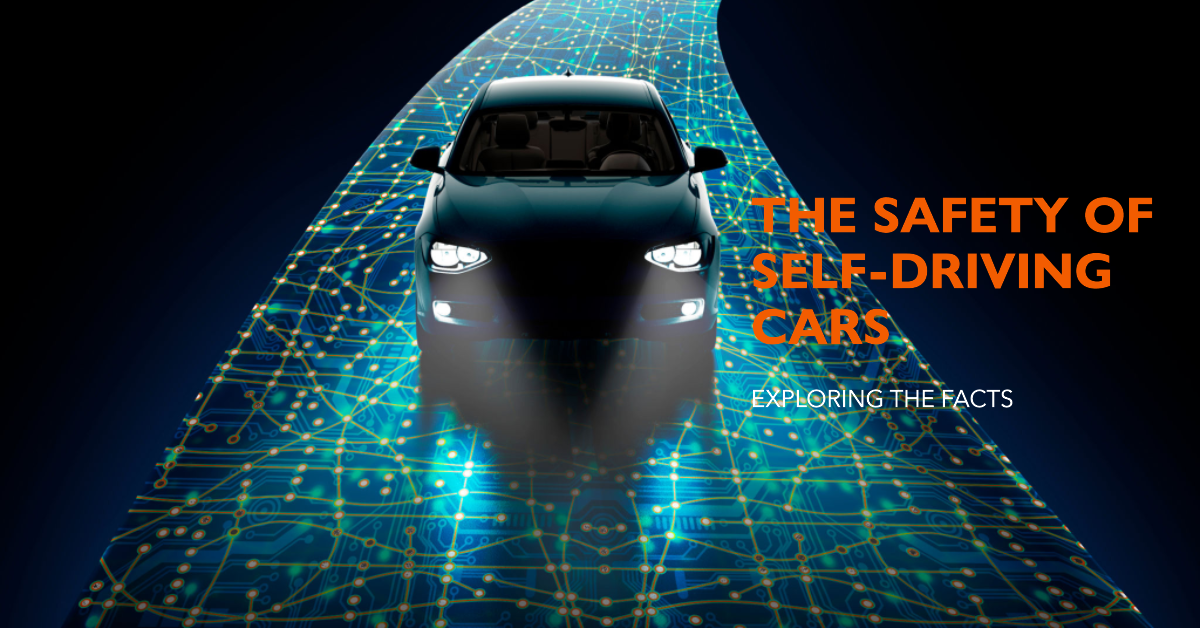Are Self-Driving Cars Really Safer? Exploring the Facts
In recent years, self-driving cars have become a hot topic in the world of transportation and technology. Proponents argue that autonomous vehicles have the potential to revolutionize road safety by eliminating human error, which is a major factor in accidents. But are self-driving cars really safer than human drivers? In this in-depth blog post, we'll explore the facts and figures to get a clearer picture of the current state of self-driving car safety.

Self-driving cars, the futuristic marvels we've all heard about, are said to be the knights in shining armor of road safety. But are they really? Let's skip the jargon and get to the facts about whether self-driving cars are safer than us, humans, when we're navigating those busy streets.
The Case for Self-Driving Car Safety
You've probably heard the buzz about self-driving cars being super safe. Here's why folks are so excited:
Goodbye, Human Error: Most accidents on the road happen because of us humans messing up. Think of texting while driving, speeding, or worse, drunk driving. Self-driving cars are designed to kick these bad habits to the curb.
Steady Eddie: These smart cars maintain a consistent speed and keep a perfect distance from other vehicles. No more sudden stops or erratic moves.
Quick Learners: Self-driving cars are like brainy students. They pick up on changing road conditions and traffic patterns faster and more accurately than we can.
No Exhaustion or Impairment: Unlike us, they don't get tired, distracted, or make poor choices due to alcohol or drugs. That's a plus, right?
The Reality Check: Self-Driving Car Incidents
Alright, we've sung their praises, but let's face it; self-driving cars have had their fair share of hiccups:
Fatal Accidents: Yep, there have been some bad moments, like the Uber self-driving car incident in 2018 that led to a pedestrian's death. It raised some big concerns about whether self-driving tech was really ready for the real world.
Software Gremlins: Self-driving cars run on software, and like any technology, they can be glitchy. A tiny software hiccup could spell disaster on the road.
Ethical Dilemmas: Picture this: a self-driving car faces a choice where there's no easy way out. Should it protect the passengers or the pedestrians? Tough decisions, huh?
Hacking Worries: As these cars get smarter and more connected, they could become juicy targets for hackers. Not a pretty thought.
Current State of Self-Driving Car Safety
Let's get to the numbers. Despite the bumps in the road, self-driving cars have shown promise in making our highways safer:
Fewer Accidents: Studies hint that self-driving cars might significantly cut down accidents. One report by the National Highway Traffic Safety Administration (NHTSA) suggests that a whopping 94% of accidents are human-made.
Miles Driven: Keep in mind, self-driving cars are still pretty new, but they've racked up millions of miles with relatively few accidents compared to us humans.
Learning Every Day: These smart cars are like sponges, soaking up data and learning from real-world experiences. As they gather more knowledge, they're bound to get even safer.
The Path Forward
So, where do we go from here? It's not all smooth sailing, but it's not a dead-end either:
Regulations and Standards: Regulators and car makers must team up to set clear safety rules for self-driving cars. We need guidelines on how these cars should behave and make decisions.
Ethics and Tough Calls: We can't dodge the ethical questions. We need to decide how these cars should handle impossible situations, and society needs to agree on the answers.
Tech Improvements: Research and development must keep charging ahead. We need to iron out software kinks, strengthen cybersecurity, and make self-driving cars more reliable.
Conclusion
So, are self-driving cars truly safer than human drivers? They have the potential to be, but we're not there just yet. While they promise to eliminate human errors and offer consistent, adaptive driving, challenges persist.
The journey toward fully autonomous, safe transportation is long, but it's one worth taking. With evolving technology, ongoing research, and a commitment to safety, self-driving cars could significantly slash traffic accidents and save lives down the road. But, it's important to approach this journey with caution and awareness, acknowledging both the promises and the roadblocks ahead.
ALSO READ
Punjab's Heroin Trafficking Network Exposed: Army and Police Personnel Among Arrested
AI Models: The New Frontier for Technology Giants
Mumbai-Pune Expressway Toll Refund After Traffic Gridlock
Punjab Police Busts Major Heroin Trafficking Network
Rethinking Retail: Human Resource Technology's Impact Beyond the Hype










